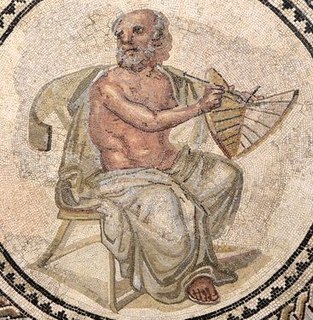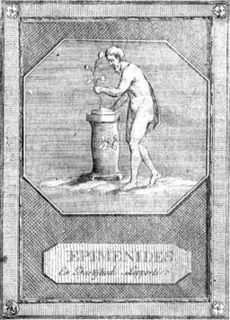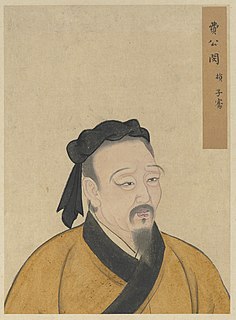 W
WAnacharsis was a Scythian philosopher; he travelled from his homeland on the northern shores of the ancient Iran, to Athens, in the early 6th century BC, and made a great impression as a forthright and outspoken barbarian, that is, a non-Greek speaker. He very well could have been a forerunner of the Cynics, in part because of his strong, but playful, parrhesia. None of his works have survived.
 W
WAnaximander was a pre-Socratic Greek philosopher who lived in Miletus, a city of Ionia. He belonged to the Milesian school and learned the teachings of his master Thales. He succeeded Thales and became the second master of that school where he counted Anaximenes and, arguably, Pythagoras amongst his pupils.
 W
WAnaximenes of Miletus was an Ancient Greek Pre-Socratic philosopher active in the latter half of the 6th century BC. The details of his life are obscure because none of his work has been preserved. Anaximenes' ideas and philosophies are only known today because of comments made by Aristotle and other writers on the history of Greek philosophy.
 W
WConfucius was a Chinese philosopher and politician of the Spring and Autumn period who was traditionally considered the paragon of Chinese sages.
 W
WDuanmu Ci, also known by his courtesy name Zigong, was a Chinese businessman, philosopher, and politician. He was one of the most important and loyal disciples of Confucius. Among Confucius' students, he was the second best at speech, after only Zai Yu. He was a prominent diplomat of the Spring and Autumn period who served as a high official in several states, and was a very wealthy businessman.
 W
WEpimenides of Cnossos was a semi-mythical 7th or 6th century BC Greek seer and philosopher-poet, from Knossos or Phaistos.
 W
WHeraclitus of Ephesus was an Ancient Greek, pre-Socratic, Ionian philosopher and a native of the city of Ephesus, which was then part of the Persian Empire.
 W
WMin Sun, also known by his courtesy name Ziqian, was one of the most prominent disciples of Confucius. Confucius considered Min his second best disciple after Yan Hui, and commended him for his filial piety. His legend is included in the Confucian text The Twenty-four Filial Exemplars.
 W
WPythagoras of Samos was an ancient Ionian Greek philosopher and the eponymous founder of Pythagoreanism. His political and religious teachings were well known in Magna Graecia and influenced the philosophies of Plato, Aristotle, and, through them, Western philosophy. Knowledge of his life is clouded by legend, but he appears to have been the son of Mnesarchus, a gem-engraver on the island of Samos. Modern scholars disagree regarding Pythagoras's education and influences, but they do agree that, around 530 BC, he travelled to Croton in southern Italy, where he founded a school in which initiates were sworn to secrecy and lived a communal, ascetic lifestyle. This lifestyle entailed a number of dietary prohibitions, traditionally said to have included vegetarianism, although modern scholars doubt that he ever advocated for complete vegetarianism.
 W
WRan Geng, also known by his courtesy name Boniu, was one of the most prominent disciples of Confucius. Confucius considered him his third best disciple, after Yan Hui and Min Sun, in terms of moral conduct.
 W
WRan Qiu, also known by his courtesy name Ziyou and as Ran You, was a leading disciple of Confucius. Among Confucius's disciples, he was the foremost in terms of ability and accomplishment in statesmanship. As a military commander of the State of Lu, he repelled an invasion from the neighbouring State of Qi. His influence in Lu facilitated the return of Confucius to his native state after fourteen years of exile.
 W
WRan Yong, also known by his courtesy name Zhonggong, was one of the prominent disciples of Confucius. Confucius thought highly of his excellent moral conduct, and considered him fit to be the ruler of a state. After completing school, he served as chief officer of Jisun, the noble clan that dominated the politics of Lu.
 W
WThales of Miletus was a Greek mathematician, astronomer and pre-Socratic philosopher from Miletus in Ionia, Asia Minor. He was one of the Seven Sages of Greece. Many, most notably Aristotle, regarded him as the first philosopher in the Greek tradition, and he is otherwise historically recognized as the first individual in Western civilization known to have entertained and engaged in scientific philosophy.
 W
WXenophanes of Colophon was a Greek philosopher, theologian, poet, and critic of religious polytheism. Xenophanes is seen as one of the most important Pre-Socratic philosophers. Eusebius quoting Aristocles of Messene says that Xenophanes was the founder of a line of philosophy that culminated in Pyrrhonism. This line begins with Xenophanes and goes through Parmenides, Melissus of Samos, Zeno of Elea, Leucippus, Democritus, Protagoras, Nessas of Chios, Metrodorus of Chios, Diogenes of Smyrna, Anaxarchus, and finally Pyrrho. It had also been common since antiquity to see Xenophanes as the teacher of Zeno of Elea, the colleague of Parmenides, and generally associated with the Eleatic school, but common opinion today is likewise that this is false.
 W
WZai Yu, also known by his courtesy name Ziwo and as Zai Wo, was a prominent disciple of Confucius, known for his gift in speech. However, Confucius severely criticized him for proposing to shorten the three-year mourning period after the death of a parent.
 W
WZhong You, commonly known by his courtesy names Zilu and Jilu, was one of the best known and most faithful disciples of Confucius. Among Confucius's disciples, he was the second in terms of ability and accomplishment in statesmanship, after Ran Qiu. He was noted for his valour and sense of justice, but Confucius often warned him against acting without forethought. He was killed in the State of Wey in defence of his lord Kong Kui.
 W
WGongsun Qiao, better known by his courtesy name Zichan, was a statesman of the State of Zheng during the Spring and Autumn period of ancient China. His ancestral surname was Ji (姬), and clan name Guo (國).